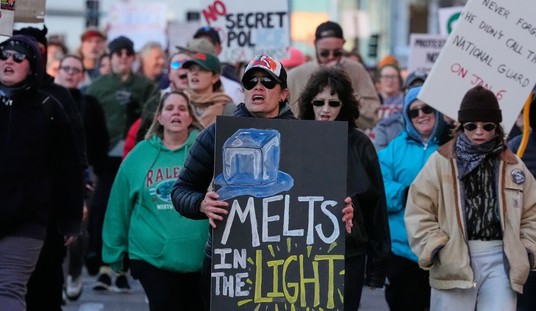Over the last few days, readers have sent a number of e-mails objecting to our focus on reconciliation as the big problem facing the opposition to ObamaCare. Reconciliation is just a ruse, they warn. The real danger is that the House will pass the Senate version of ObamaCare and that Barack Obama will sign it into law. The Senate doesn’t have to do anything at that point, except perhaps dodge the missiles tossed across the Capitol’s parking lot from their colleagues in the House after stiffing them on fixing their concerns.
That certainly has some truth to it. The House has had the option to do just that ever since the Senate passed its version in late December. The House can do that at any time during this session of Congress, which ends in December. They do not need to even put it through the committee process, but can bring it to the floor expeditiously — and Republicans have no way to stop it. If Nancy Pelosi ever decides to do that — presuming she can get the votes to pass it — Obama would surely sign the bill.
If that’s all it took, though, it would already have been done. The problem is that the Senate bill is unpopular among Democrats in the House, mainly for three reasons. First, the Senate stripped out the public option. Progressives have come to a grudging understanding that they’re not going to revive that. However, they’re not at all pleased with the so-called Cadillac tax funding mechanism in the Senate bill, primarily because it will hammer union workers who won big health-care benefits over the years. Finally, on the opposite end of the Democratic caucus, the abortion issue has made the Senate bill a bridge too far for at least a dozen Representatives who voted for the bill the first time — when it passed by only five votes.
Pelosi, a member of the progressive caucus, made it clear that the Senate version was not acceptable and would not be the last word. She may change her mind at some point, but thus far, we’re not seeing much indication that enough of her Democratic caucus is willing to come along if she does. They’re only reluctantly proceeding with strategies to pass the Senate bill, conditional on passing a parallel bill that addresses their objections. The parallel bill is what would have to go through reconciliation, and now some Democrats have publicly insisted that the parallel bill would have to go through first. Harry Reid wants to use reconciliation to keep Republicans from filibustering the parallel bill and grinding the entire strategy to a halt.
Perhaps Democrats might feel as though they can simply trust the Senate to get the parallel bill accomplished and move forward on the Senate’s ObamaCare bill. That would take a rather extraordinary investment in the good intentions of both Reid and the White House. Unfortunately, as the Washington Post reported this week, that trust is in mighty short supply in the House:
Another senior member of the House Democratic caucus put it more bluntly. “I don’t think the White House has listened to him enough,” said the member, who spoke on the condition of anonymity to discuss frustration with the White House. “There is this growing sense in the House that this White House is tone-deaf and doesn’t care about 2010, that it is sacrificing members for 2012 and that the president thinks he doesn’t need to get engaged, or that he thinks politics don’t matter and that he could care less about what is happening on the streets of our districts. That’s not Rahm.”
The battle is certainly in the House, without question, as well as in the Senate. Like any Rube Goldberg device, the reconciliation strategy has a number of vulnerable points where a little sand in the gears will cause the whole mechanism to break down. That means we have to keep our eyes on the entire strategy, not just on one process, which Republicans and other ObamaCare opponents are doing.
The real nightmare scenario isn’t that the House might pass the Senate bill now, or in April. It’s that Democrats might get stymied now, and then pass the Senate bill after the midterms in late November, and allow Obama to sign it into law well after the time when voters have held them accountable for their radical agenda.
Update: The Anchoress wonders whether Obama’s thinking, “Your lips say no but your eyes say yes.”







Join the conversation as a VIP Member